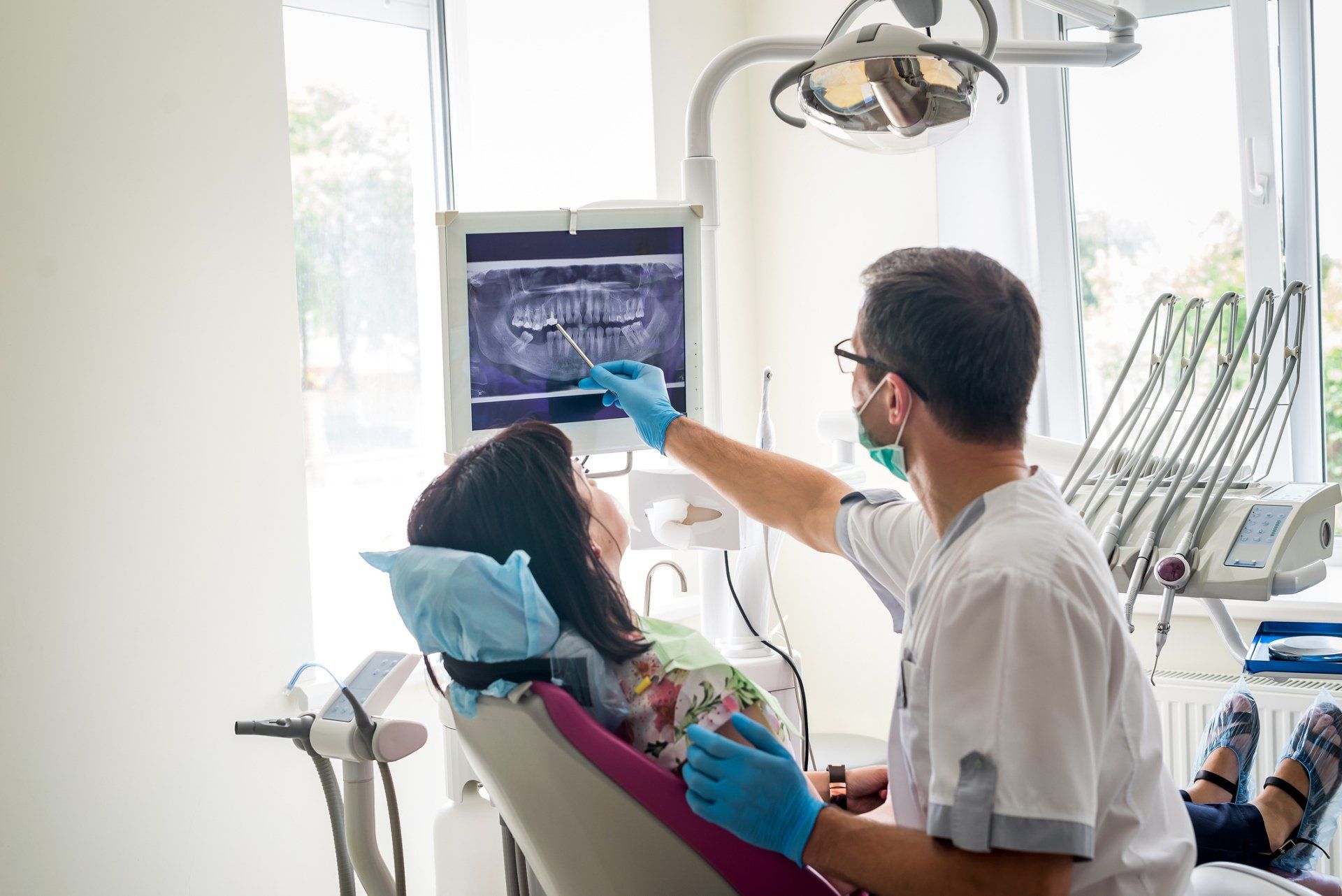Is Your Headache From Oral Complications?

If you get frequent headaches, instead of blocking the pain with pain medications, consider finding the source of your reoccurring headaches. In many cases, your headache may actually relate to your oral health. If you want to better protect your oral health and stop headaches from reoccurring, keep reading to learn how various oral compilations can lead to headaches and head pain.
Teeth Grinding
People grind their teeth for many reasons. If you catch yourself doing it during the day, this is probably from stress and/or anxiety. If you tend to grind your teeth at night, however, you may have something wrong with your bite. Other patients may suffer from teeth grinding due to sleep apnea or crooked teeth.
You may not even be aware if you grind your teeth at night, so look for the signs and symptoms of teeth grinding, including worn teeth, flat teeth, sensitive teeth, and jaw pain, particularly in the TMJ, which is in charge of opening and closing your mouth. Grinding your teeth irritates this joint, causing it to become tight. This pulls on other muscles connected to your head, leading to frequent headaches.
Treatment depends on the reason you grind your teeth. If it's stress, consider talking with your doctor about counseling, an exercise program, or medications. If the reason is a sleep disorder, talk to your doctor and dentist about CPAP machines or oral devices to prevent your throat from collapsing. Last, if the cause is crooked teeth or a misaligned bite, you'll likely need orthodontic treatment.
Radiating Pain
Sometimes, your headache isn't really a headache. Pain can radiate to nearby parts of your body. This is why when you have a toothache, you might find it difficult to determine which tooth actually needs attention.
This happens because of the path the pain sensors take to reach your brain. Many areas of the body use the same nerve pathways. Therefore, you may have a toothache, but as the pain travels to your brain, it follows the same path as head muscles, radiating pain to them.
Since you can't adjust your nerve pathways, you have no way to prevent or treat radiating pain unless you treat the underlying oral condition. Identifying the problem can be easy, if the tooth is clearly decaying, but if you have an underlying infection that causes the radiating pain, you may not know until your dentist takes X-rays.
Infections
If an infection does develop, root canal therapy is usually a requirement, but if treatment doesn't come fast enough, the infection is aggressive, or your tooth roots penetrate the sinus cavity, it can spread to your sinuses, making you feel like you have a terrible sinus headache. Sinus headaches usually affect your cheekbones, forehead, and the bridge of your nose.
The pain worsens if you suddenly move your head, such as leaning forward or standing up too fast. In many cases, the infection may not have actually spread to your sinuses. Instead, it may just be putting extra pressure on the sinus cavity.
You'll be able to determine if you have a sinus infection or just sinus pain when you blow your nose. The mucous will be discolored like pus. You may also have flu-like symptoms including a sore throat, fever, and cough. If you do have sinus pain without flu-like symptoms, you probably don't have a sinus infection.
Oral pain can make life miserable, and it doesn't always remain in your mouth. A lot of oral pain can radiate to your head, making you feel like you have a tension or sinus headache constantly. If you would like more information, contact ustoday at Rabel Family Dental.






